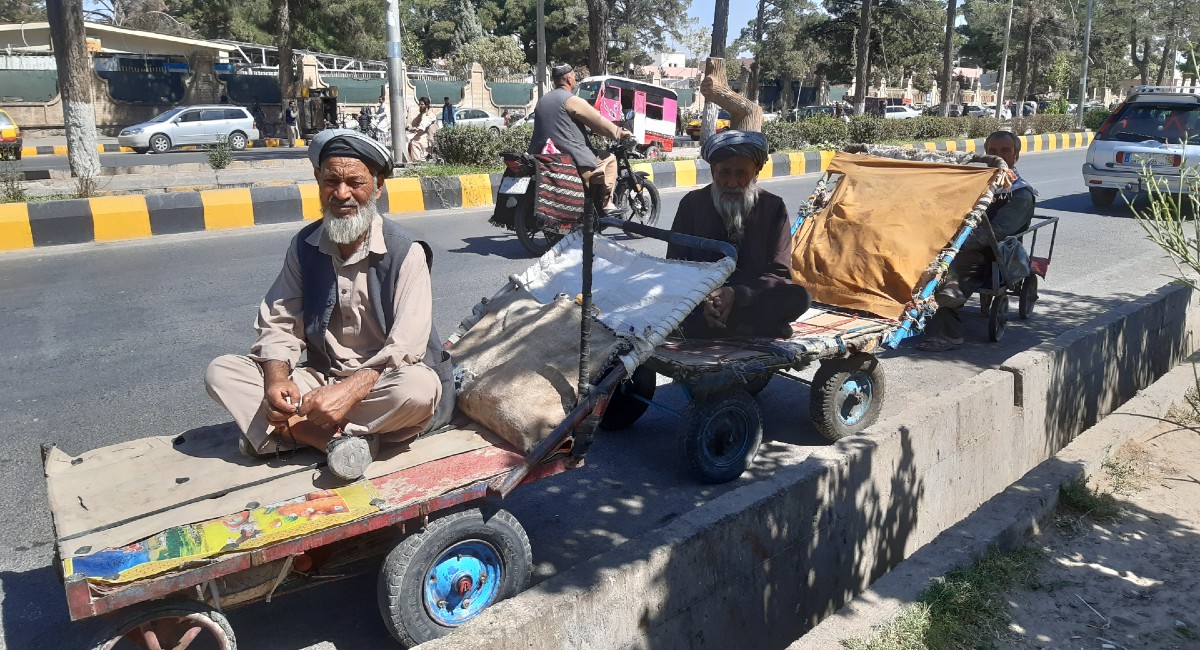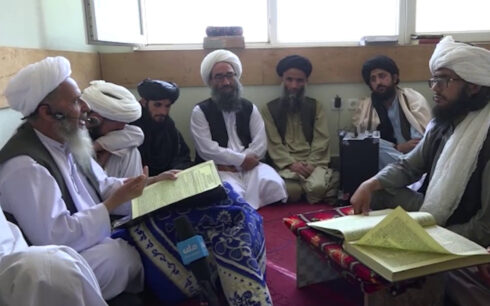Millions of people across Afghanistan have been plunged into deeper poverty as aid organizations cut back on assistance due to funding shortages.
Numerous people Amu spoke to painted a grim picture of their dire situation and said the humanitarian crisis is being exacerbated by a shattered economy and a very weak healthcare system.
They appealed to donor countries for help saying they are in “grave need” of humanitarian assistance as the Taliban have failed to provide job opportunities.
Amu interviewed a number of vulnerable people across Afghanistan. Some of them criticized the lack of transparency in the aid distribution process.
Juma Khan, a laborer, said he has not been given any humanitarian assistance in two years. He says he ekes out a living, to support his family of eight, by delivering groceries for people using his wheelbarrow.
“Over the past two-years, I have not received any assistance any time. I have a wheelbarrow and I am the breadwinner for eight people in the family,” he said.
Nazar Hossien, another citizen, said he polishes cars for money.
“I have an income of 300 afghanis ($3.84) a day. I pay 3,000 afghani rent per month and I have to feed five people,” he said.
Poverty has meanwhile forced countless families to send school-aged children out to work.
Osman, who is only 10 years old, works as a street vendor. He carries a huge responsibility at his young age, as his family of eight rely on him for food.
“Some days, there is no good work and I go home disappointed because we don’t have anything to eat,” he said.
Zakir, 8, is another child deprived of schooling and works on the streets of Kabul. Also to take care of his family.
The UN Office for the Coordination of Humanitarian Affairs (UNOCHA) said recently that a staggering 29 million people are in need of humanitarian assistance in Afghanistan. This is almost three quarters of the entire population.
Other UN agencies have also voiced concerns over the severe budget shortfall which is preventing them from delivering assistance to millions of people in the country.
Early last month, the World Food Programme (WFP) ranked Afghanistan as the 2nd highest country with more than 1 million of its people facing emergency levels of hunger.
Prior to that, WFP warned of having to cut aid to another 2 million “hungry people” in Afghanistan. This brought the total to 10 million people cut off from WFP support this year.
WFP said that it will only be able to distribute emergency assistance to three million each month.





